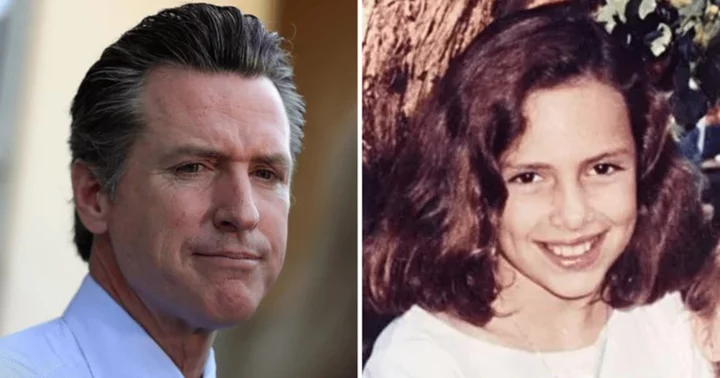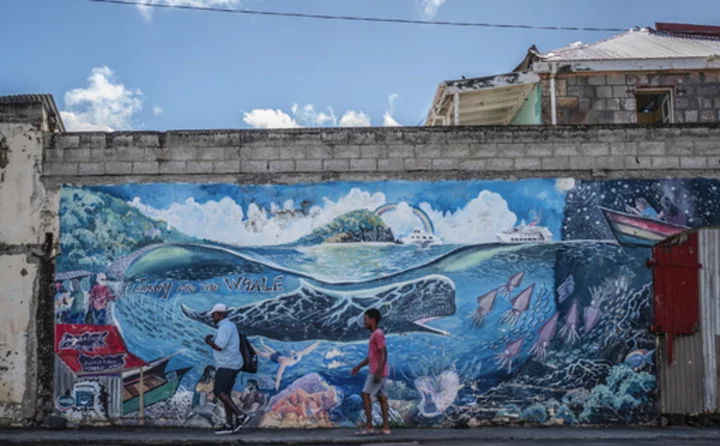By Maayan Lubell and Michael Georgy
JERUSALEM/DUBAI Prime Minister Benjamin Netanyahu's options for hitting Hamas over its deadly incursion into Israel could be reined in by concern for the many Israelis seized in the raid, as a nation scarred by past hostage crises faces perhaps its worst one yet.
In a dramatic assault launched from Gaza on Saturday, the Palestinian group Hamas stormed into Israeli towns, killing more than 600 Israelis and escaping with dozens of hostages, in the deadliest day for Israel since the 1973 war.
Netanyahu has vowed "mighty vengeance" but the fate of the Israeli soldiers, elderly people, women and children taken into Gaza - the numbers are still unclear - complicates how Israel delivers on its promise to hit back hard and fast, while sticking to a longstanding principle of leaving no one behind.
Israelis are reeling from the assault and from images of fellow citizens being bundled off to Gaza.
"There is no chance she will come back," sobbed a young Israeli girl, talking about her sister who was killed in the attack, while she and her parents were held hostage. She was shown in a video posted on the social media platform X by senior Israeli Ministry of Foreign Affairs official, Ambassador David Saranga.
In 2011, Israel swapped hundreds of Palestinian prisoners to win the release of one Israeli soldier, Gilad Shalit, who was held for five years. That kind of exchange - which even at the time was criticised by some Israelis as too lopsided - looks an impossible bargain when dozens of people may be held this time.
More than 300 Palestinians have been killed in Israel's response, as warplanes hit sites across Gaza. It was typical of Israel's immediate retaliation when faced with an escalation. In addition, thousands of troops have been deployed in southern Israel next to Gaza, which Israeli forces withdrew from in 2005.
But what happens next is more difficult to determine.
HOSTAGE 'INSURANCE POLICY'
"The cruel reality is Hamas took hostages as an insurance policy against Israeli retaliatory action, particularly a massive ground attack and to trade for Palestinian prisoners," said Aaron David Miller, a senior fellow at the Carnegie Endowment for International Peace.
"Will it constrain how Israel responds? If the numbers are great, how could it not?" he said.
The Israeli Foreign Ministry said Israel would act to free the hostages, seriously damage Hamas's "terrorist infrastructure" and ensure no terrorist group in Gaza could harm Israeli citizens again.
But there are no easy choices. Trying to rescue all those Hamas said were now held in different locations could jeopardise their lives. Yet, protracted negotiations with Hamas over a prisoner swap would be a huge win for an arch foe of Israel.
Netanyahu, who heads one of the most right-wing governments in Israeli history, has invited opposition leaders to join a unity government, seeking to broaden support for any response.
For Netanyahu, securing the freedom of hostages comes with painful personal memories. In 1976, his older brother was killed rescuing hostages at Entebbe airport in Uganda, an action the younger Netanyahu said shaped his future life.
Lt Col Yonatan "Yoni" Netanyahu led an assault team of 29 commandos who stormed the airport terminal to rescue Israelis and others from an Air France flight that had been diverted to Uganda by Palestinian and German hijackers.
In an earlier incident in 1972, Israeli Olympic team members were taken hostage at the athletes' village in Munich by Palestinian gunmen from the Black September group. Within 24 hours, 11 Israelis, five Palestinians and a German policeman were dead after a rescue effort erupted into gunfire.
Israel responded by sending agents to kill the men it considered masterminded the attack, in an alleged covert operation that lasted years. Several Palestinians were assassinated in various locations in Europe and the Middle East.
NEW SCALE OF CHALLENGE
Gaza presents a different scale of challenge. In a long career, Netanyahu has shown little appetite for ground campaigns and Gaza would be a messy place to wage war, with more than 2 million people crammed into a tiny strip of land run by Hamas, which has been in control since a brief war with security forces loyal to West Bank-based Palestinian President Mahmoud Abbas in 2007.
Ariel Sharon, a veteran of the 1973 war and prime minister when Israel withdrew from Gaza in 2005, called the Israeli withdrawal painful but said keeping hold of such a densely populated area was too difficult.
Netanyahu could follow a more familiar strategy of assassinating Hamas leaders with air strikes and bombs. One of the most high-profile operations was the assassination of Sheikh Ahmed Yassin, spiritual leader of Hamas, in a helicopter missile strike in 2004. But such strikes have not dislodged Hamas.
Hamas deputy chief Saleh al-Arouri told Al Jazeera the group now had a large number of Israeli captives - Hamas has not given any numbers so far - saying there were enough to secure the release of all Palestinians prisoners.
The Palestinian Prisoners Association puts the number held in Israeli jails at about 5,250.
If Israel agreed to releasing all of them, it would be a huge win for Hamas and other militant groups - and for that reason be a politically difficult bargain to make for Netanyahu or any Israeli leader.
Yet, Mohanad Hage Ali of the Carnegie Middle East Center said negotiations appeared the only clear way forward.
"No matter what kind of pain he inflicts on the Palestinians - in terms of bombing buildings or assassinating its leaders in Gaza - this will not diminish from what Hamas has inflicted on Israel," he said.
(Reporting by Maayan Lubell in Jerusalem, Nidal al-Mughrabi in Gaza, Michael Georgy in Dubai; Writing by Michael Georgy and Tom Perry; Editing by Edmund Blair)









